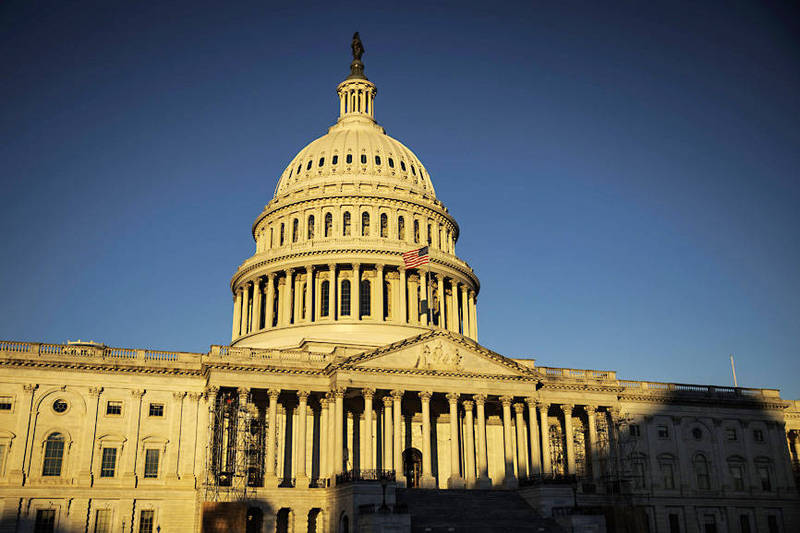《TAIPEI TIMES》US approves training for Taiwan forces
NDAA 2024: The US bill authorizes the secretary of defense to set up a ‘comprehensive training, advising and institutional capacity-building program’ for Taiwan’s military
By Liu Tzu-hsuan / Staff reporter
The US Congress this week passed the National Defense Authorization Act (NDAA) for Fiscal Year 2024, which includes stipulations authorizing the US secretary of defense to establish a comprehensive training program for Taiwan.
The US Senate and the US House of Representatives passed the NDAA on Wednesday night and Thursday respectively, before sending the bill to US President Joe Biden to sign it into law.
The bill authorizes US$886.3 billion in US defense spending, about 3 percent more than the previous fiscal year.
In Taipei, the Ministry of National Defense thanked the US Congress for showing its support for Taiwan by taking concrete steps to bolster the defense and combat capabilities of the Taiwanese military.
The military will continue to train and prepare itself to counter enemy threats and boost defense to ensure peace and stability in the Taiwan Strait and the Indo-Pacific region, it said in a news release.
US Senate Majority Leader Chuck Schumer on Wednesday said that the bill allows the US to “strengthen our resources in the Indo-Pacific, to deter aggression by the Chinese government and give resources for the military in Taiwan.”
US Senator Jack Reed said that the bill “bolsters US alliances and partnerships to operate successfully in competition with rival powers, particularly in the Indo-Pacific and Europe.”
US Representative Mike Rogers, chairman of the US House of Representatives Committee on Armed Services, hailed the passage of the bill, saying that it “includes measures to refocus the military on lethality.”
Among other things, the bill “enhances US military readiness in the face of increasing Chinese aggression,” he said.
The NDAA stipulates that the US should continue to support the development of “capable, ready and modern defense forces necessary for Taiwan to maintain sufficient defensive capabilities.”
The US should do so by means including selling arms to Taiwan, maintaining exchanges between defense officials, and “conducting practical training and military exercises with Taiwan” to help it maintain sufficient defensive capabilities, the bill says.
In accordance with the Taiwan Enhanced Resilience Act, the US secretary of defense should, in consultation with Taiwanese officials, establish a “comprehensive training, advising and institutional capacity-building program for the military forces of Taiwan,” it says.
The purposes of the program are to enable a layered defense of Taiwan, including using an asymmetric defense strategy; enhance interoperability and encourage information sharing between the US and Taiwan; promote joint force deployment; and improve professional military education and the civilian control of the military, it says.
The program should enable the Taiwanese military to improve its tactical proficiency and operational deployment to conduct a layered defense, and the ability to participate in bilateral and multilateral military exercises, it says.
In addition to the training program, the US secretary of defense is required to engage with Taiwan to cooperate with Taiwan’s military on “defensive military cybersecurity activities,” including defending military networks, infrastructure and systems against malicious cyberactivity, it says.
The bill also orders the US government to assess the degree to which Beijing is using economic or other forms of coercion to pressure Taiwan’s diplomatic allies in the Pacific into switching diplomatic recognition from Taipei to Beijing.
The US government should also conduct a “comprehensive study” on the global economic impact of a Chinese invasion of Taiwan, it says.
新聞來源:TAIPEI TIMES




















